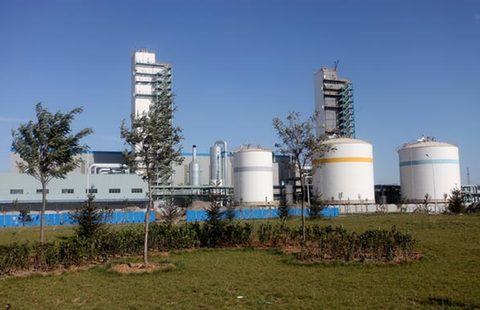China on steep learning curve in LatAm: Expert
Updated: 2015-03-23 04:15
By JACK FREIFELDER in New York(China Daily Latin America)
|
||||||||
Despite gains in the investments by China in Latin America's agricultural sectors, multinationals and small and medium-sized enterprises still stand to benefit from added know-how in new foreign markets, according to an expert on China's presence in Latin America.
"There's an important learning process that's going on for Chinese companies in terms of more effectively using local partners," said R. Evan Ellis, a professor of Latin American studies at the US Army War College Strategic Studies Institute in Carlisle, Pennsylvania.
 |
|
R. Evan Ellis, a professor of Latin American studies at the US Army War College Strategic Studies Institute in Carlisle, Pennsylvania |
"Chinese companies are looking to obtain secure access to the food products that are in their market at reasonable prices," Ellis said. "As the demands of their customers increase, they are trying to build foreign networks to get part of what they need."
As Chinese people begin to consume more protein in their diets, there is an "exponential increase" in the need for food exports from overseas, Ellis said.
"An important distinction to make is China's strategic goal to maintain as much self-sufficiency as possible in food for human consumption," he explained.
"Those same goals do not apply to food for animal consumption," he said. "Now, they have lowered those goals a bit, but most of what we're talking about here is building to secure supply chains toward food for animal consumption."
Ellis was one of several experts on Latin America who contributed to a book released in February entitled Chinese Foreign Policy: Relations and Regional Cooperation.
Raquel Leon de la Rosa, a professor of international relations at the Autonomous University of Puebla (BUAP) in Puebla, Mexico, said the idea behind the book was to gather "a diversity of opinions" about China's involvement in Latin America.
"China is constantly changing," de la Rosa said. "Here in Mexico we have few Sinologists, and students and scholars don't have information because of the language barrier. All of the people who wrote in this book have a different opinion of China, and we decided to create the book to get kind of a foreign policy handbook."
De la Rosa was one of two main authors behind the book, along with Juan Carlos Gachúz Maya from the Monterrey Institute of Technology and Higher Education.
"Agriculture is the most important sector in the Chinese economy for foreign policy development," she said. "China has an agricultural strategy for Latin America where they have identified which kinds of products are important for them. This has been a period where Brazil opened the door of the Latin American region to China.
"Sometimes China wants to see Latin America like one big block," she said. "It's really complex, because Latin America has huge diversity and there's a risk in trying to apply the same strategy."
China is already the largest overseas trading partner for Brazil, government data showed. Bilateral trade grew to $83.3 billion in 2013, up from $3.2 billion in 2002, according to a July 17 report from Reuters.
China is also a leading trade partner for Peru, Mexico, Chile and Uruguay, among others.
According to Ellis, many initial attempts from Chinese firms to buy land in the agricultural sector in Latin America have gone for naught.
"In general, acquiring land or ownership of land is not a viable strategy," he said. "In the last five years, especially starting in about 2010-2011, what you had was a push for Chinese companies to use their capital to try to replicate the types of logistics infrastructures for acquiring, storing and shipping food to the ultimate customers.
"Basically, it's an attempt by companies to replicate the infrastructures that Cargill and Archer Daniels Midland have long had in the region," he said. "But not all Chinese companies are equal" to the task.
As such, a number of different major projects in the animal feed sector that have been tried by large Chinese agricultural producers "basically went nowhere".
"The market is still very diverse, but at the large level the current stage is acquisitions," Ellis said. "Land acquisition is very complicated. What you're seeing is not just the Chinese discovering that they need local partners, but instead a process of the Chinese getting better in making intelligent selections and use of local partners."
And some big Chinese companies are quickly moving up the learning curve, he said.
"The entry of Chinese companies into Latin American and Caribbean operations is driven by a market need," Ellis said. "At the same time you've had a wealth of problems that are due to a mixture of opposition by the well-connected and politically savvy established players, as well as simply the relative newness of major Chinese actors to the Latin American context.
"There are clearly major constraints to Chinese investment in terms of acquisition — mismanagement at the policy level, strict procurement rules, etc," he said. "Businessmen on both sides are developing experience and contacts in dealing with each other, and that leads to bigger and more complex deals."
jackfreifelder@chinadailyusa.com

 Top 10 steel producers in China
Top 10 steel producers in China
 Highlights of China Fashion Week
Highlights of China Fashion Week Cockpit mystery emerges
Cockpit mystery emerges
 ISU figure skating worlds opens in Shanghai
ISU figure skating worlds opens in Shanghai
 Canola flowers form the emblem of harmony
Canola flowers form the emblem of harmony
 Your city in the shape of tiny round planet
Your city in the shape of tiny round planet
 Families mourn victims of Airbus A320 crash
Families mourn victims of Airbus A320 crash
 38,000 Brazilian troops to safeguard 2016 Rio Olympics
38,000 Brazilian troops to safeguard 2016 Rio Olympics
Most Viewed
Editor's Picks

|

|

|

|

|

|
Today's Top News
US invites Brazil's Rousseff for official visit
RMB hub makes a splash
US offers support to military action against Yemen's rebels
US sending Bill Clinton for Lee Kuan Yew's funeral
US military charges ex-Taliban captive Bergdahl
China, US work to clear legal hurdles
Cockpit voice recorder of crashed German plane found
US states reach out to China
US Weekly

|

|








